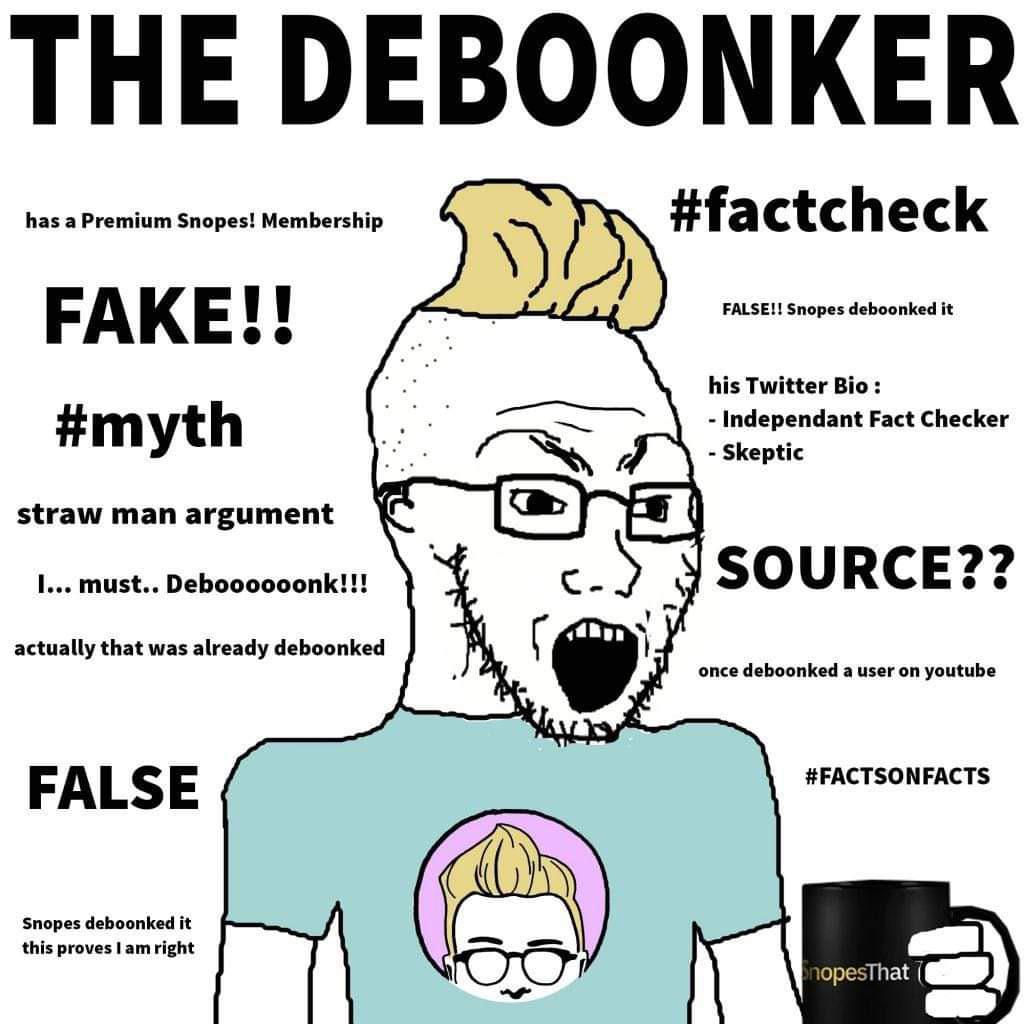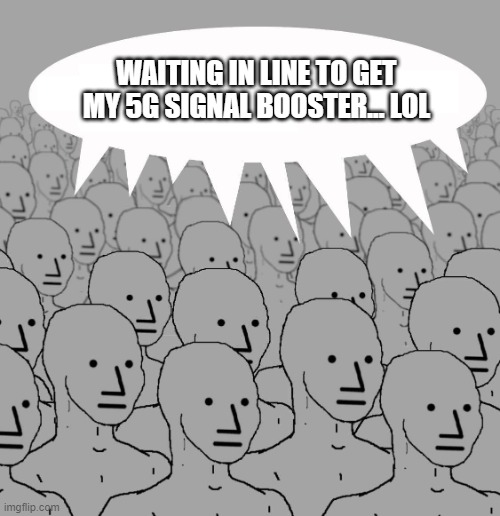Deboonk-ism is a phenomenon by which people rush at debunking what's perceived to be a wild conspiracy theory. Debunking, as in deconstructing a theory or a system, can be a great way to analyze a problem. However, in most cases it's done out of faith and prejudice, without any real research to truly understand the root of the issue at hand, which is usually a lot more complex than initially thought.
The typical deboonker has a general idea of what the scientific method is about, but has also an idealistic view of science, as some religion that is practiced in academic circles and that is able to produce consistently objective results, all with an acceptable degree of confidence, and all vetted and communicated by benevolent gate keepers coming from the corporate world, political world and the press.
It becomes then a tribal and religious act, one that does more harm than good. Tribalism is a human thing, but modern social media has certainly amplified the effect. We all have a tendency to hypercorrect trends. Truth may be in the middle, but we tend to get there by arguing by extremes and holding certain beliefs for years at the time. Anything that doesn't conform to a prescribed narrative, is immediately ridiculed an belittled, no room is given to skepticism and actual critical thinking. Hypotheses that are ad odds with the mandate of the day are quickly shot down. Any evidence, or lack of evidence, is dismissed on the spot, as some infectious disease that will rot the mind in minutes.
From a social perspective, it pays to follow the mainline, because the infrastructure of conformism gives some form of insurance towards mistakes, it's a shield against humiliation. As long as you stick with the plan, you have moral right to debunk the skeptics. You won't be criticized in case of obvious mistakes, because you were simply following a narrative coming from above, and those that are above are professionals at deflecting blame (see "George Carlin on the language of politics", a must watch in my book).
On the other hand, being a skeptic is dangerous, because any mistake becomes automatically confirmation that one should not have dared to stray from the herd. Even worse, one is automatically bundled together with any other person that is considered to be a skeptic, also known as "guilt by association"… i.e. "you're not one of those flat-Earthers, are you ?".
The social pressure makes things worse, because the more rational skeptics tend to be silent for fear of reprisal, leaving the job to speak out to those that may be a bit too obsessive if not downright paranoid. This amplifies the effect of conformism, where the deboonkers can go wild, and wild they go. It's a power trip to be right on social media, dispensing smackdowns on the few that still dare to bring up points that sound too crazy to be true, whether or not there's any actual truth to be had. From a purely practical perspective, being a conformist and toning down critical thinking is necessary to make things work in a collective. There's no doubt that humanity gets in the way of productivity. As technology improves, we employ more and more robots to help us with labor, but robots aren't necessarily mechanical. Historically, the majority of humans have been employed to work in a very organized fashion, something that requires limited critical thinking and limited creativity.
From a purely practical perspective, being a conformist and toning down critical thinking is necessary to make things work in a collective. There's no doubt that humanity gets in the way of productivity. As technology improves, we employ more and more robots to help us with labor, but robots aren't necessarily mechanical. Historically, the majority of humans have been employed to work in a very organized fashion, something that requires limited critical thinking and limited creativity.
Even in a future in which less labor will be required of us, for as long as we're considered an asset, or even just a competing force to be discouraged, there will be a structure in place to sustain uniformity of thought. I guess that deboonkers are here to stay.